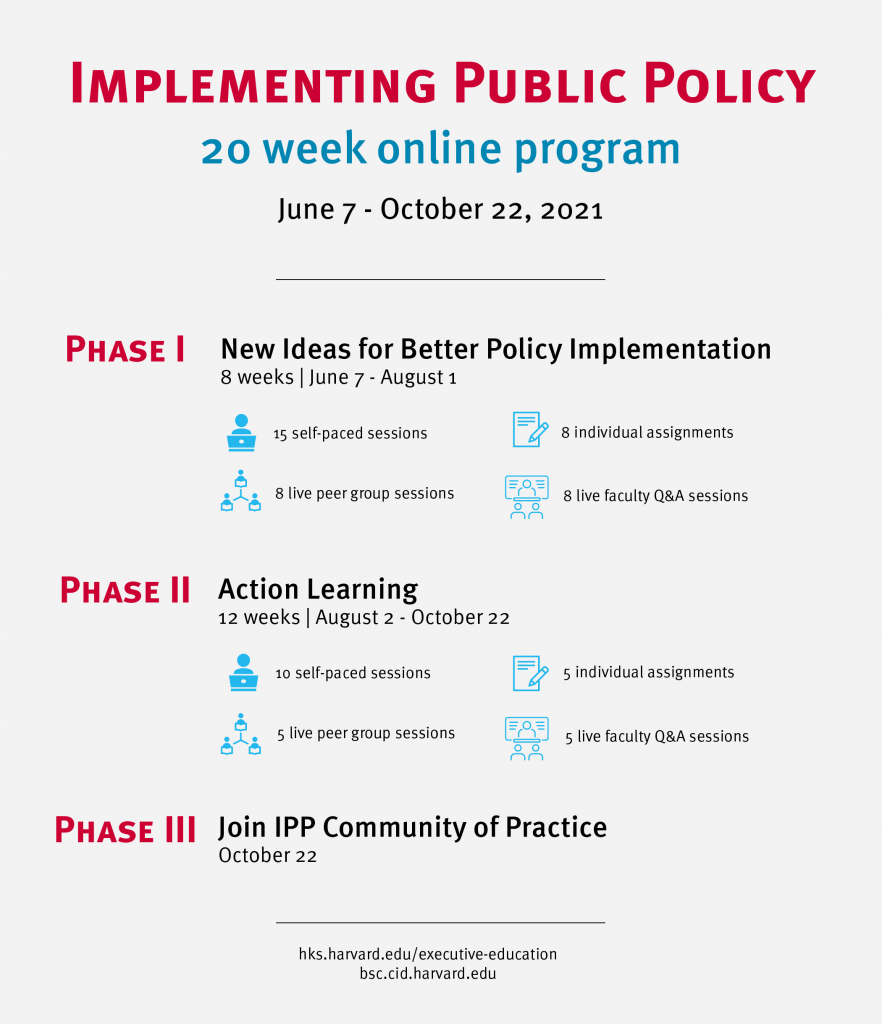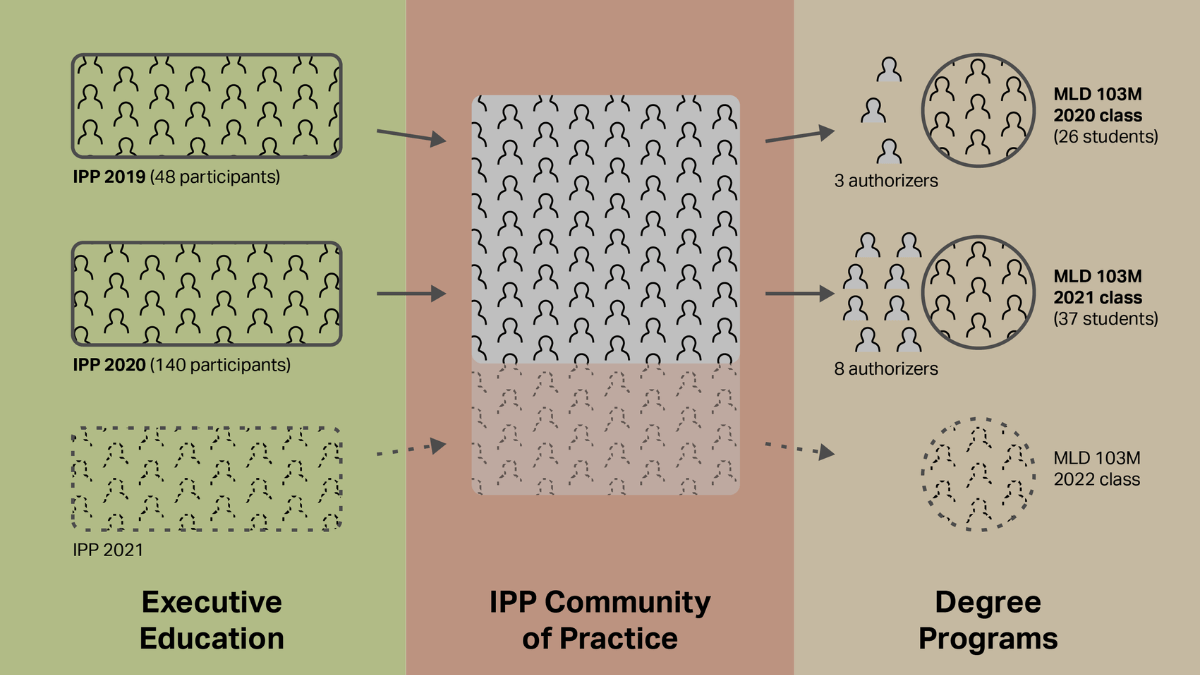written by Salimah Samji
Solving public problems is a hard and thankless job. One that is undertaken with a shortage of time as well as resources, and often under pressure to deliver results. A common approach used to solve public problems is to develop a plan, sometimes with experts, and then to assume that implementation will happen on autopilot. To quote Mike Tyson, “Everyone has a plan ’till they get punched in the mouth.” The question is, what do you do after you get punched? Continue with your existing plan? Or do you learn from the punch?
In the face of complex and interconnected public problems, approaches like plan and control often fail to provide results. We believe that flexible approaches which focus on problems, follow an iterative process, and allow for learning and adaptation are better suited. While public problem solvers agree, they often lack the know-how and tools to use alternative methods to plan and control. In addition to these capabilities, public problem solvers also find themselves feeling lonely and isolated. As Kirsten Wyatt, co-founder of Engaging Local Government Leaders (ELGL) said in a recent podcast, “everyone is not lucky enough to be married to a bureaucrat.”
Our experience in training development practitioners and working directly with governments around the world, has taught us that action learning is crucial for building the muscle memory of solving complex problems: the only way to learn is by doing. We have learned that you cannot solve these problems alone – you need a team. However, working collaboratively is neither obvious nor innate. It is yet another muscle that needs to be built. You also need to engage with diverse stakeholders and constantly navigate difficult conversations which requires particular skills.
Putting our learning into practice
Drawing from our experience, BSC designed Harvard Kennedy School’s first blended learning Executive Education Program Implementing Public Policy (IPP), in 2019. The objective of this 7-month program was to equip public problem solvers around the world, with the skills, tools, and strategies needed to successfully implement policies and programs. Participants were required to identify an implementation problem that they could work on resolving over the period of the program. The program was divided into four phases:
Phase 1: Online preparatory work. (May 2019). In this phase, participants completed two online modules that helped them reflect on their problem and to think about public policy success and failure.
Phase 2: Learning the theory in the classroom. (June 2019). In this phase, participants explored the conditions under which different implementation methods like plan and control, adaptive management or agile, and facilitated emergence or PDIA, should be used. They also learned how to work collaboratively in teams, how to engage in difficult conversations, as well as, leadership, and management skills. The faculty included: Matt Andrews, David Eaves, Monica Higgins, Salimah Samji and Rob Wilkinson. We also invited Ganga Palakatiya and Alieu Nyei, whom we had worked with in Sri Lanka and Liberia, to share their experience trying to operationalize PDIA in their governments. Anisha Poobalan, who had worked with us in Sri Lanka as a PDIA coach, and had led our efforts to help build a community with the alumni of our PDIA online course, joined us to support the program participants in the action learning phase.
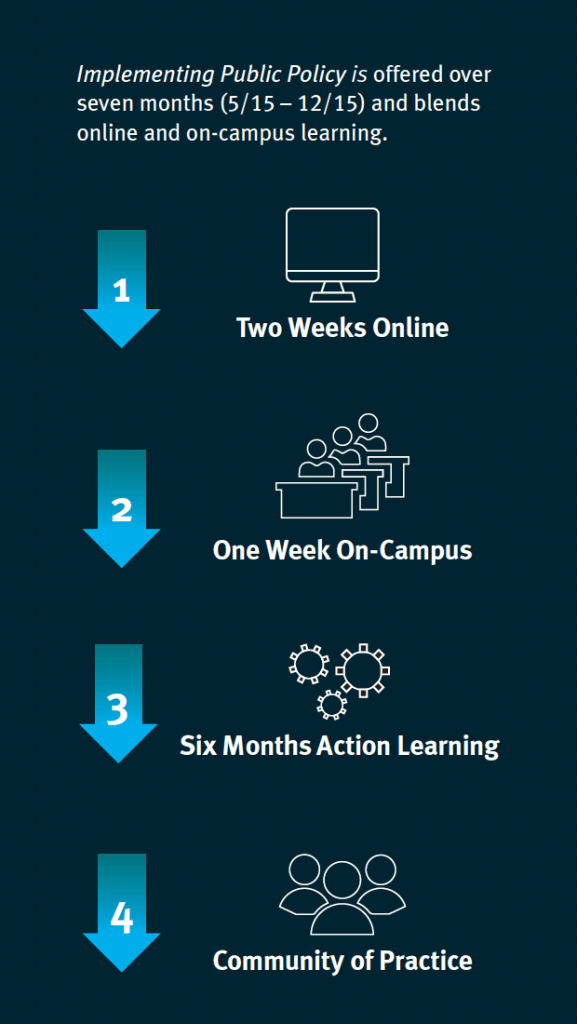
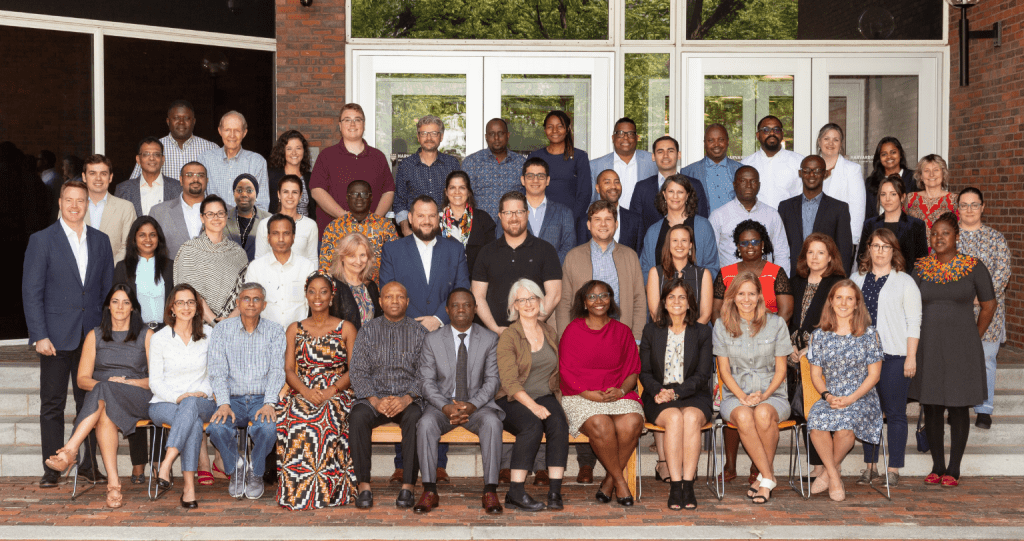
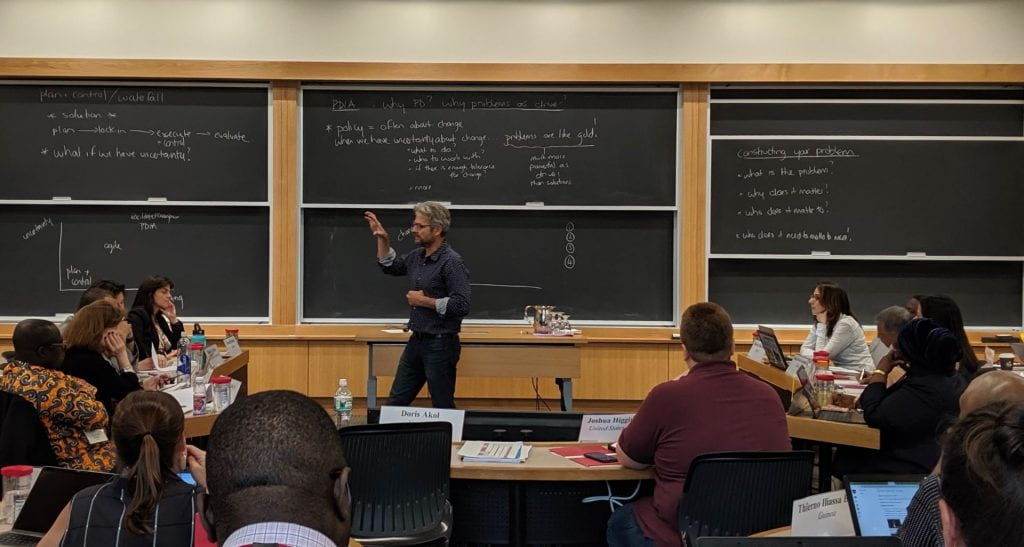
Phase 3: Action learning in practice. (July – November 2019). In this phase, participants returned to their countries to apply the new tools and strategies they had learned to their implementation problems. They built teams, worked on self-study online modules, completed assignments and attended virtual peer learning group meetings every month.
Phase 4: Joining a community. (December 2019). In this phase, participants who successfully completed the program became members of the Harvard Kennedy School’s Implementing Public Policy Community of Practice – a network of professionals committed to improving public policy implementation around the world.
Since all the participants were in their countries at the end of the program, we had to hold a virtual closing ceremony on zoom in December 2019 and certificates were mailed to participants. Little did we know then that we were foreshadowing what 2020 would bring!
48 participants from 19 countries successfully completed the program and joined our inaugural IPP community of practice.
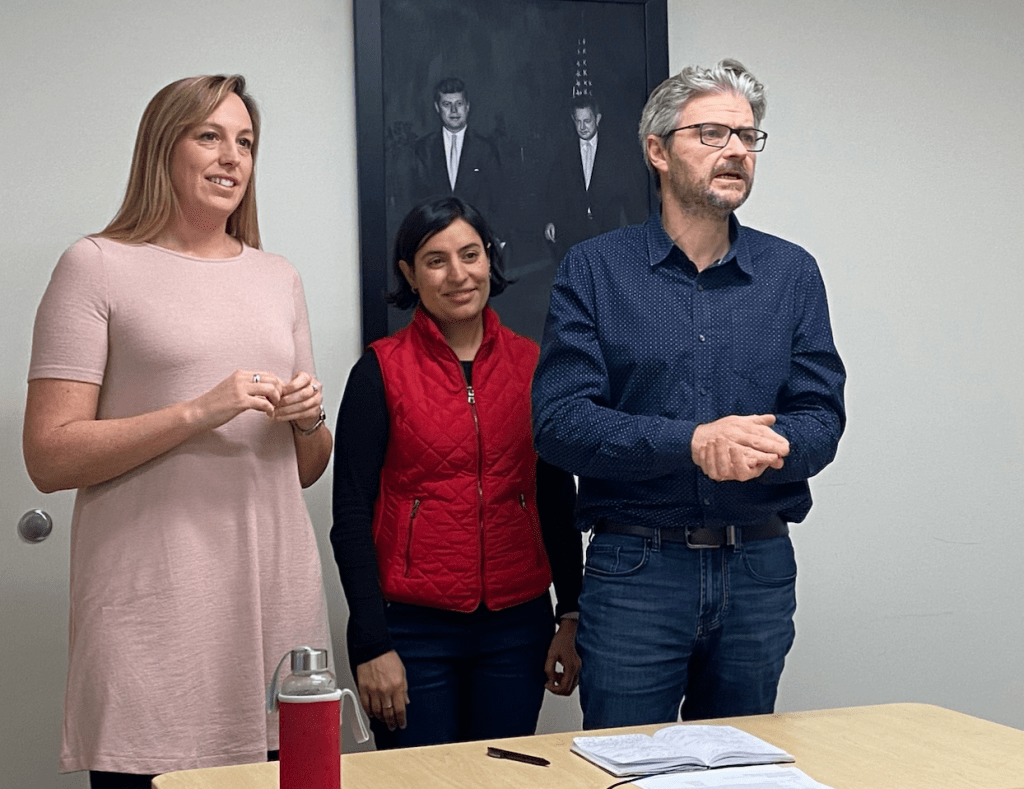
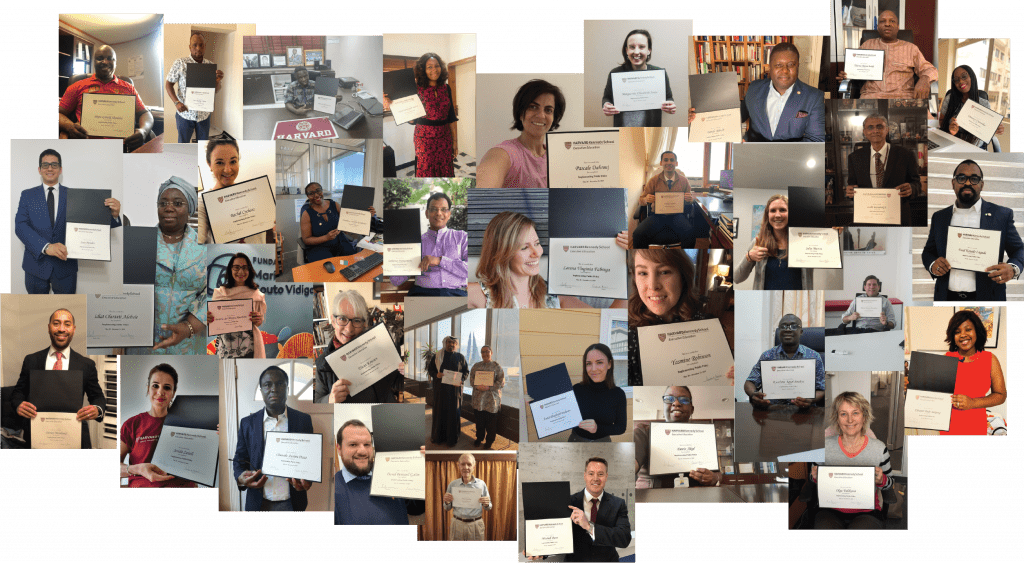
As part of the program, the participants wrote blogs about their learning journey. We created a new IPP alumni series and posted 35 blogs last year. You can also listen to the participants sharing their experience.
Building a community of practice
We have been thinking about building communities of practice since we launched our PDIA online course in 2015. In 2017, we began experimenting with how to create a community with the alumni of our PDIA online courses. Over the years, iterated on different platforms and tested the levels of coordination and communication required to create a sense of community amongst our alumni. We learned that building a community was not a simple task and it required constant learning as well as ownership from the community itself. This is an area that we continue to learn from.
As we launched our new IPP community of practice in December 2019, we were very clear about giving ownership of the community to the alumni, while also providing them the support they needed. We recruited Anisha Poobalan, who had already met and worked with all the IPP participants, to be our community manager. We also identified four IPP alumni to serve as our first set of moderators of the community: Eleanor Sarpong, Maggie Jones, Marco Mastellari, and Mohamed Hejres.

The moderators would serve for a 6-month term and then pass the baton to other members of the community. Their responsibilities included sending weekly emails to the community, organizing monthly calls, and facilitating smaller group discussions. At the end of their term, they wrote a blog titled Practice Makes Purpose, about their experience leading the community from January to June 2020.
Our second set of moderators took on the leadership role of the IPP community of practice in July 2020. Etambuyu Gundersen, Jorida Zeneli, Luis Paredes and Tricia Kovacs helped steer the community through the thick of the pandemic. They sent motivational emails, shared challenges they were facing with remote work/school, experimented with pop-up sessions and organized small group discussions led by community members to share their work as well as new tools they were using. The commitment of the moderators was inspiring – they joined calls past midnight in their time zone, gathered ideas/feedback from community members and kept moving forward, iterating and adapting along the way. On one of our moderator calls, Jorida aptly referred to the IPP community as a “community of purpose.”

Connecting real-world practitioners to in-classroom learning
Matt Andrews and I, co-teach the class entitled, PDIA in Action at the Harvard Kennedy School. This is a field lab class where students learn how to use the PDIA approach by working on real-world problems – they learn by doing. The students work together in teams with an authorizer/client.
In January 2020, we decided to experiment with the idea of asking our IPP program alumni, who were already familiar with the PDIA approach and were members of our community of practice, to be authorizers for our students. Three IPP alumnae, Julia Martin, Maggie Jones and Olga Yulikova, signed up to work with our students and nominated the following problems for them to work on:
- Homicide in Charlotte, North Carolina
- Homelessness in Tarrant County, Texas
- Early-onset dementia in the workplace in Massachusetts
Over a period of six weeks, twenty-six students worked across six teams, and adopted a problem driven approach to foster learning that could help their authorizers develop an applied response to their problems. They learned how to work together as a team, drew fishbone diagrams, conducted the triple-A change space analysis, identified entry points, spoke to stakeholders, undertook two iterations, and presented their lessons learned to their authorizers in class on March 9th, 2020. You can read more about what student’s learned about dealing with uncertainty, the bias towards finding solutions, the importance of different perspectives, iteration, and team-work. Each student team also wrote a blog about their learning journey.
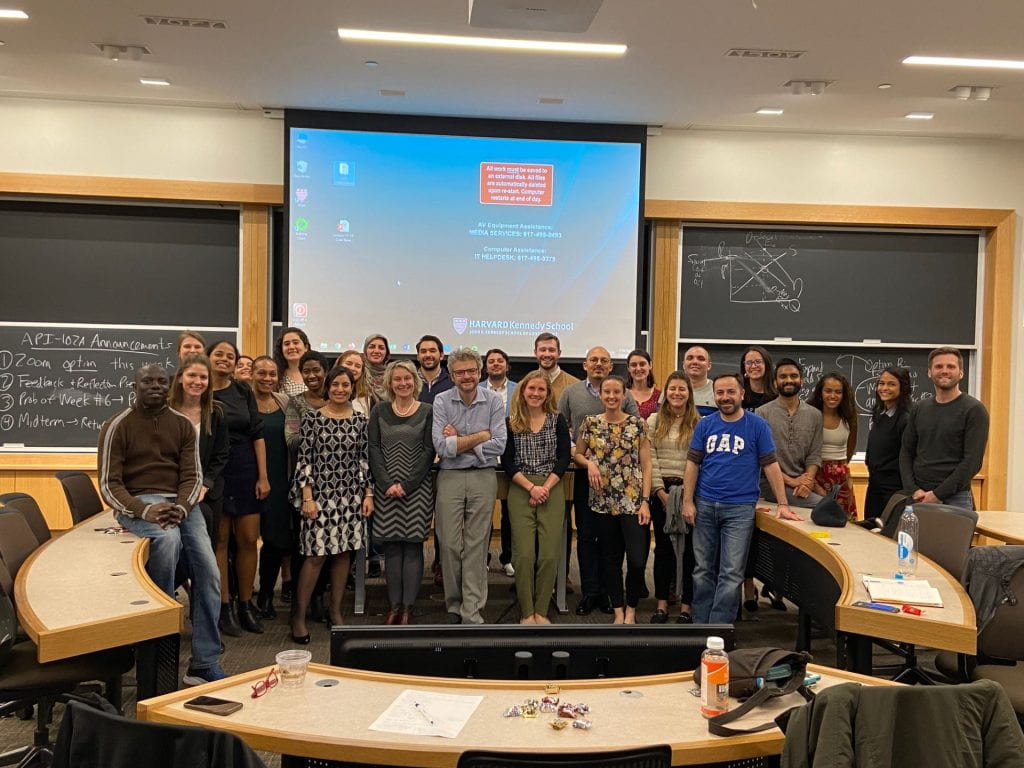
Bridging our executive education teaching with our degree program teaching was transformational. Our students had the opportunity to work with practitioners who understood what they were learning, were familiar with the tools/language, and were members of our IPP community. This experience allowed our students to deepen their learning and it also gave our alumni an opportunity to work with our students and to learn from them. It was such a success, there was no turning back!
Moving IPP online during the pandemic
We were scheduled to offer IPP again in May 2020 and participants had already applied for the program. With the pandemic raging and all of our executive education moving online, we needed to make a decision: should we hold off until 2021 or do we pivot to online?
The answer was easy – holding off was not an option. If anything, the pandemic had demonstrated the urgent need to build public sector capability to meet this unprecedented challenge. It was an important time to convene policymakers and practitioners around the critical implementation issues cities, regions, and countries were facing.
Drawing on BSC’s past experience running both online programs and blended learning programs, we pivoted IPP to 25-weeks online. 140 participants from 45 countries successfully completed this program.
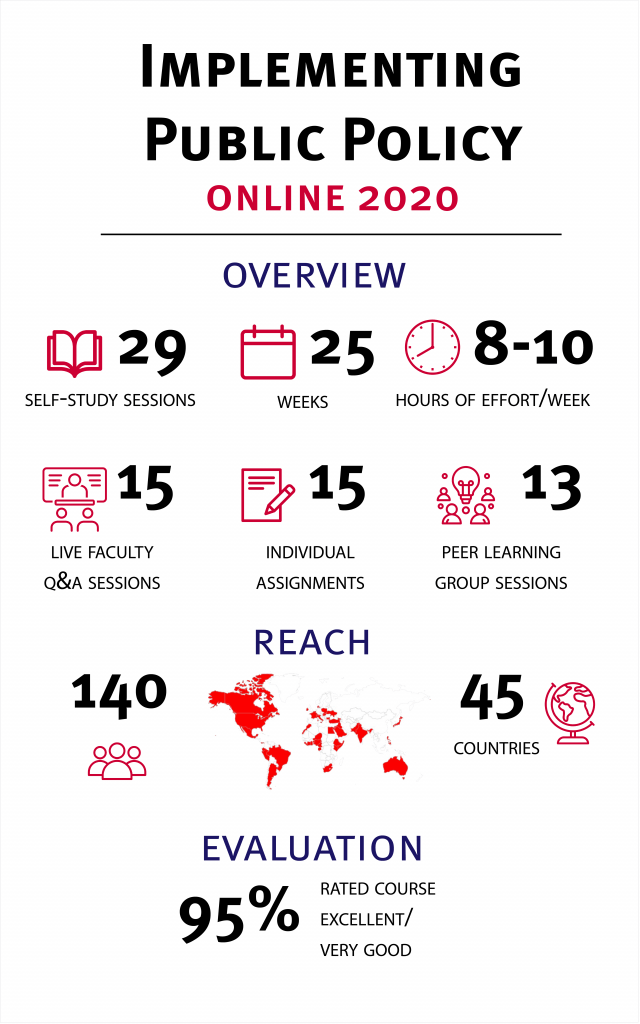
“The IPP course was one of the best educational experiences I have ever had in my over 25 years of local government and non-profit work!
“The study material in both audio-visual and text format were excellent. The combination of live sessions, peer group sessions, and the assignments, ensured that while one learnt, one also got to share experiences and learning.”
“Practicing these skills using my challenge allowed me to work through my questions/uncomfortableness in a non-threating way. And the reflection periods showed me how much progress we were making!”
The participants wrote blogs about their learning journey which you can find here.
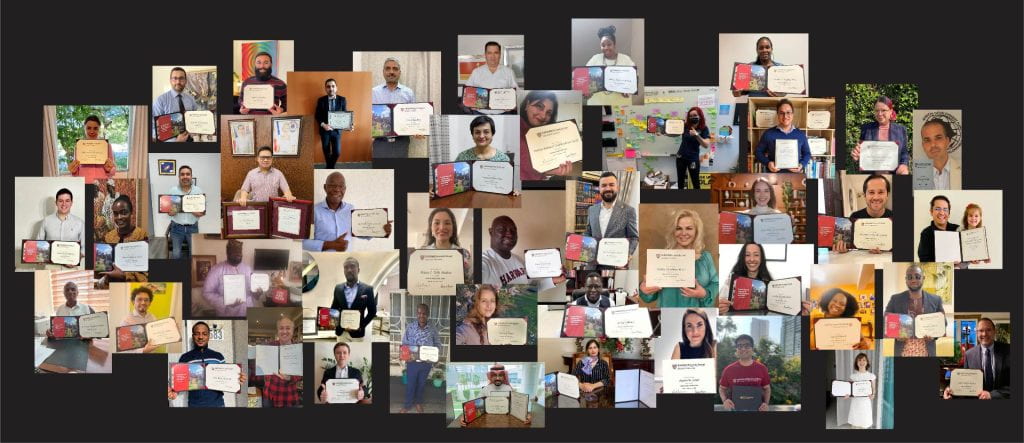
Our community of practice grew from 48 members to 184! When selecting our new set of moderators, we included members from both the 2019 and the 2020 cohort. Our new set of community moderators for January-June 2021 include: Bandi Mbubi, Doran Moreland, Isabel Tarrisse da Fontoura, and Nadia Islam.
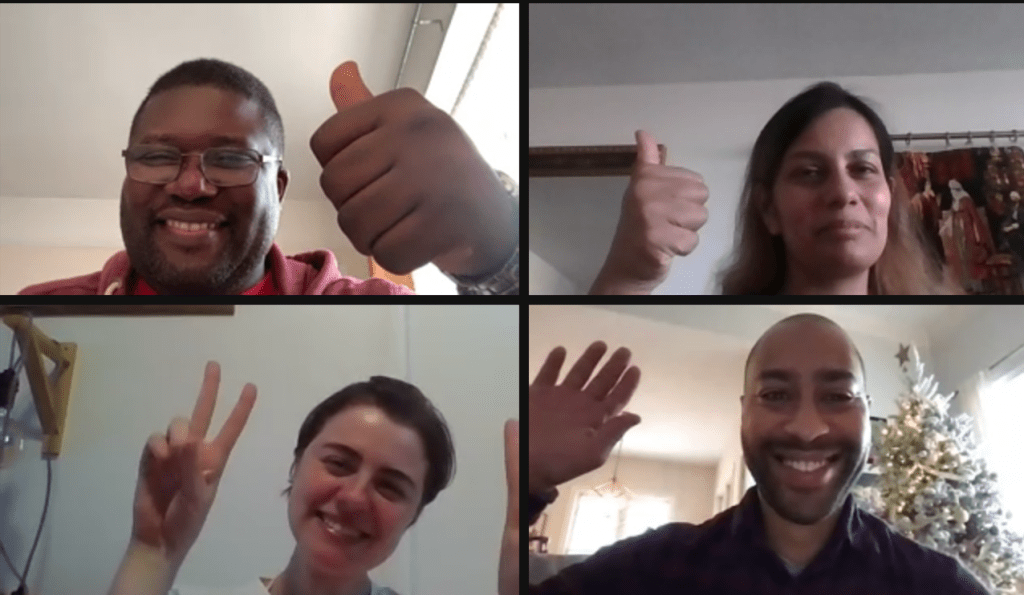
Teaching a field-lab class virtually during the pandemic
The Harvard Kennedy School has offered most of its classes remotely for the academic year 2020-21. This meant that we had to pivot our PDIA in Action class to online.
I reached out to our IPP community of practice and asked if any members wanted to work with our students. Several members volunteered and eight alumni, Keith Young, Adaeze Oreh, Milzy Carasco, Kevin Schilling, Artem Shaipov, Imbenzi George, Raphael Kenigsberg, and David Wuyep, signed up to work with our students and nominated the following problems for them to work on:
- Reparations in Asheville, North Carolina
- Tacking safe blood in Nigeria
- Police and community relations in Lancaster, Pennsylvania
- Lack of childcare in Burien, Washington
- Legal education reform in Ukraine
- Trade relations between Canada and Kenya
- Radicalization in France
- Minimizing the incidence of abandoned projects in Nigeria
Over a period of seven weeks, from January to March 2021, 37 students worked across eight teams, drew fishbone diagrams, conducted the triple-A change space analysis, identified entry points, spoke to stakeholders, undertook two iterations, and presented their lessons learned to their authorizers – all virtually!
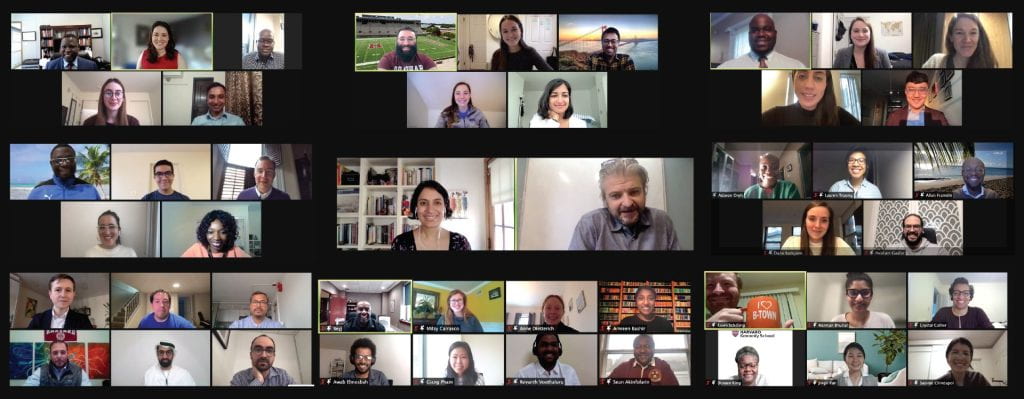
Each student team also wrote a blog about their learning journey. You can find them here.
The journey continues …
We are offering IPP online again – join us for the adventure!
